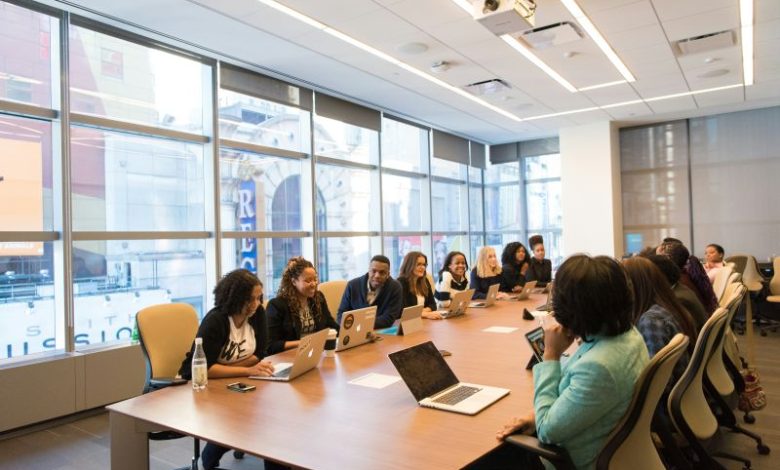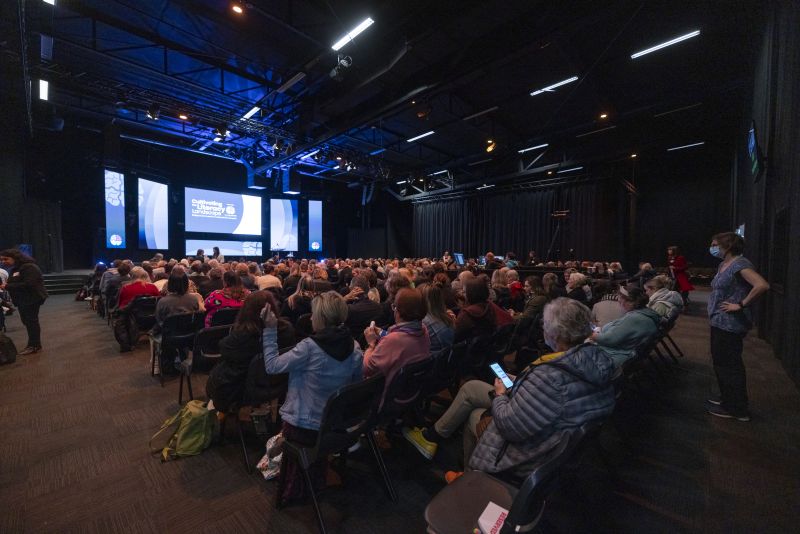Targeted professional learning development
Professional Learning Development is essential to remain on top of your teaching game. What opportunities are available in 2024?

Ongoing professional learning and development (PLD) is crucial for ensuring excellence for ākonga in our education system.
Read the latest print edition of School News HERE
Learning new things, adding onto knowledge bases or refreshing prior knowledge through PLD is necessary for all educators to ensure they are providing students with the most effective teaching. Upskilling and undergoing training is essential to kaiako and senior leadership’s ability to continue to provide excellent education for the modern-day child.
Kaiako, principals and school staff are simultaneously navigating new issues and old, learning how to respond to children’s needs and often requiring support for their own. Through professional learning and development, the education system remains flexible and responsive to social needs, ensuring we continue to develop the next generation of workers, thinkers, and decision makers.
Professional learning and development is therefore an expectation, if not a requirement in many schools. There are various courses available, and they target the various priorities that the Ministry of Education has set out for our education sector in Aotearoa. This may be cultural capabilities, structured literacy and numeracy approaches, increasing the influence and use of te reo Māori in schools, or curriculum design. There are also courses in wellbeing and leadership, skills that are increasingly crucial for schools today as our collective resilience is tested by the myriad of challenges facing schools.
Given the many opportunities available for PLD, the first step is to identify local priorities for your school, kura or Kāhui Ako. What are whānau, staff and students struggling with at the moment? What capabilities and qualities would your school like to develop in its culture? What skill shortages exist in the community, and how can the school address this need?
It’s then important to think deeply about the delivery of professional development and choose the appropriate course. What type of PLD experience will have the most impact in your school or Kāhui Ako? Is it a series of short workshops spread over a term, or a few intensive days of training? Is it online modules guided by a PLD provider? What sort of support do your staff and students need to integrate new principles and concepts delivered through PLD into their everyday teaching practice? How will school leaders provide their staff with support and guidance, especially when implementing a whole-of-school approach?
Schools or learning communities might then go through the regionally allocated PLD application process. Alternately, teacher aides can now apply for professional learning online to upskill in ways that align with the goals of their school or kura and its students. All types of professional development are covered by the fund, including both face-to-face and online delivery.
Teacher aides are valuable and often under looked resources for schools and classrooms. The roles they perform are varied and flexible and present a sometimes-unfulfilled opportunity to meet learning support needs in any given classroom. School leaders looking to develop an area of learning priority within their school should consider the available opportunities for not just whole-of-school PLD, but individuals like teacher aides.
Although a whole-of-school approach is often the most effective and preferred approach, it also comes with administrative burdens like organising appropriate times for kaimahi participation. Individual PLD may help to target unmet need in the short-term and provide a bridging or a step-stone toward a whole-of-school response to certain learning targets.

PLD that is taken individually could also contribute to a whole-school cultural shift in some cases, for example, upskilling a teacher aide in te reo Māori skills may have flow on effects for the use of reo Māori in the school community and whānau engagement. Alternately, training one or two staff members in digital technologies may be the beginning of a wider cultural shift in attitudes to technology and digital spaces within the school.
Certain PLD priorities can be assigned to school leaders who are then in charge of leading colleagues in a certain field. For example, curriculum design and setting the vision for learning is the domain of school leadership, so it makes sense that PLD in this realm should be targeted for school leaders.
Outside of a school or community-led delivery of targeted professional learning and development, there are also several opportunities available for kaiako to gather with colleagues and share knowledge and ideas in the form of education-industry conferences. These conferences often share a theme related to the Ministry of Education-set learning priorities and are ideal spaces for kaiako to expand their community networks and learn from one another.
Conferences are also a good way to develop many areas of professional need at once and diversify the knowledge base and practices that staff bring to their school. This form of PLD may be a good option for schools where different classes, year-groups or contexts may have different needs.
Another advantage is for schools which may have more than one area of PLD that meet the priorities set out within the Ministry of Education guidelines. Conferences provide access to many professionals, modes of learning—from lectures to workshops—and areas of development at once, from curriculum design to cultural competencies and more.
What PLD opportunities are on offer in 2024? We spoke to several providers to find out.
Established in 2013, the FREEDOM Wellbeing Institute is the exclusive global provider of research-based services and capability programmes underpinned by the Universal Wellbeing Model. This Model has emerged from a 15-year wellbeing research programme which was supported by two national Best Practice Research Awards.
Annual professional development offers include interactive online, and face to face community of practice, webinars, workshops, resources, and an annual conference. The Universal Wellbeing Evaluation Tool Accreditation Programme will help your staff achieve measurable improvements in engagement, achievement, and equity.
Invest in building the capacity of your staff to implement the Universal Wellbeing Evaluation Tool with FREEDOM, and build a whole of organisation Universal Wellbeing system through professional capacity building coordination, facilitation, coaching and leadership programmes.
Tātai Aho Rau Core Education strive for a vision of an equitable and thriving Aotearoa where all learners can experience success. Their PLD is done with an equity lens – the team understands how to be inclusive of all learners in the programmes they implement. PLD opportunities extend to areas such as te reo Māori, cultural capability, structured literacy, curriculum support, and equity practice.
With more than 20 years experience delivering successful PLD within schools and kura, the team have a deep understanding of curriculum design and the national priorities – and a great reputation to go along with it. Tātai Aho Rau works to deeply understand its customers’ needs. Being responsive to the learning needs of tamariki, as well as kaiako and tumuaki, ensure a successful learning experience for all.
Immerse provides professional learning development to schools and educational staff, assisting participants to develop a deeper understanding of complex developmental trauma and how this impacts on children’s behaviour and learning.
Opportunities include specialised training for the Ministry of Education’s Intensive Wraparound Team (caregivers/family, teacher, teacher aide, SENCO, and Ministry of Education psychologists); two-day teacher and teacher aide training; and one-day school-wide teacher only day training.
Training with Immerse is highly interactive, and participants take away a toolbox of strategies and ideas to use in the classroom to assist challenging children with healing and learning.

For more than eight years, Learning MATTERS has supported schools and educators in Structured Literacy implementation. Whether educators are beginning their journey or refining practice, our comprehensive Professional Learning and Development (PLD) offers varied learning options.
Their PLD includes in-school consultancy, teacher-only days, whole school professional learning series, and remote coaching, all supporting the implementation of Structured Literacy with the iDeaL Approach. Additionally, our consultancy team offers Regionally Allocated Professional Learning and Development (RAPLD) services, focusing on Assessment for Learning and Local Curriculum Design.
The Learning MATTERS Intervention Teaching (LMIT) Certification, accredited by the International Dyslexia Association, is a 12-month course specialising in evidence-based Structured Literacy intervention. LMIT equips participants to provide effective individualised support for Tier 3 learners.
Learning MATTERS also hosts focused workshops like two-day spelling and reading workshops and three-day Structured Literacy for intervention workshops. Larger-scale events like the ‘Cultivating the Literacy Landscape’ symposia cater to school leaders, educators, and parents, featuring international speakers in New Zealand.









